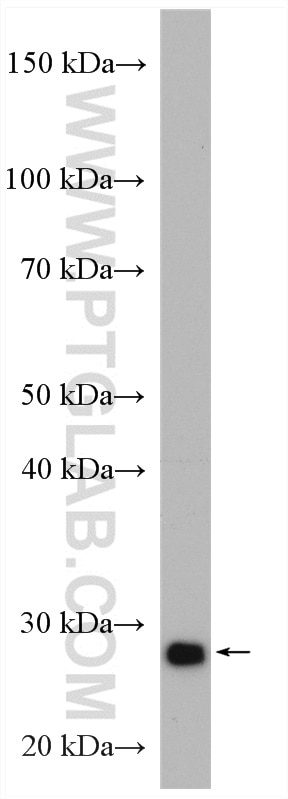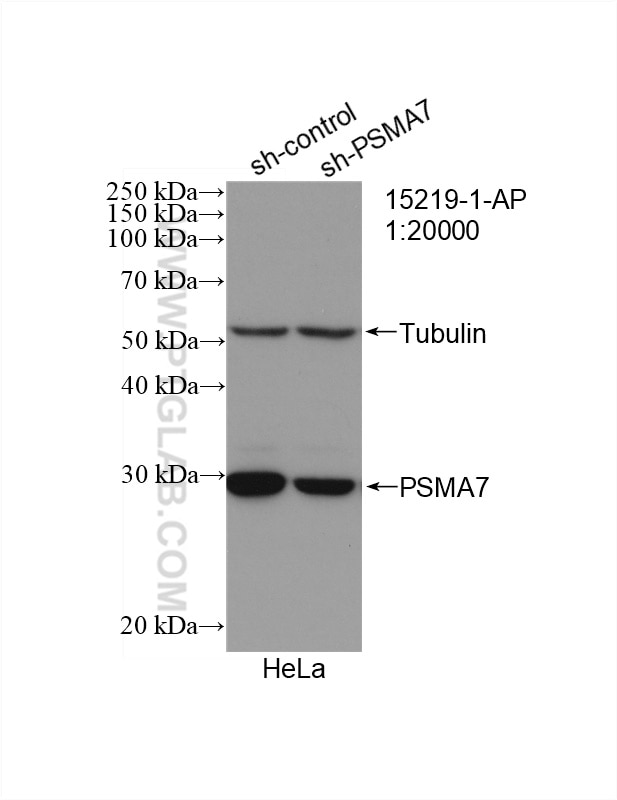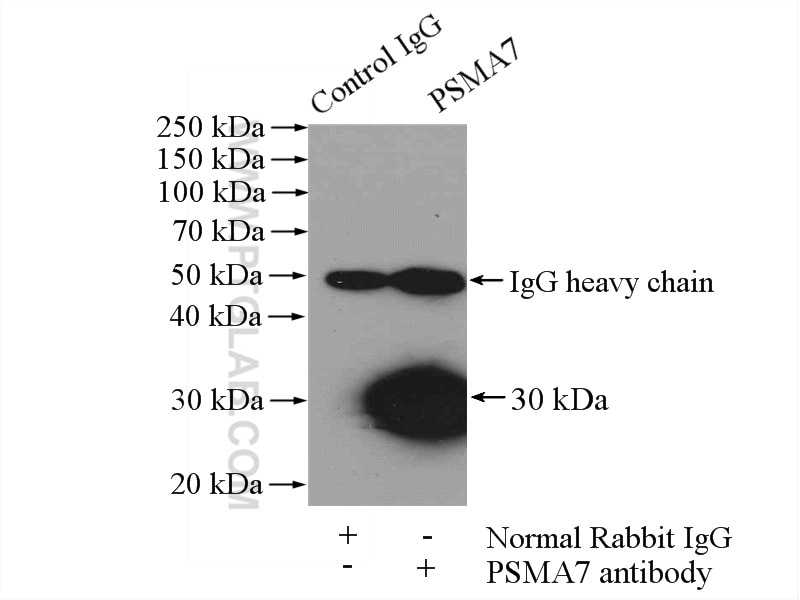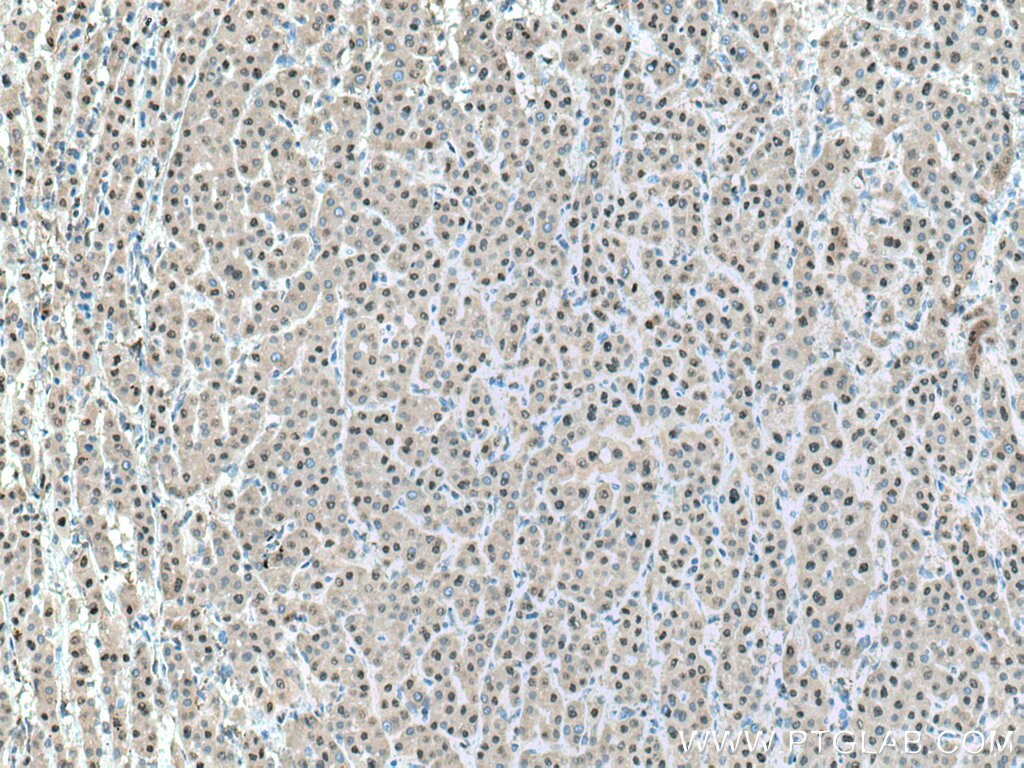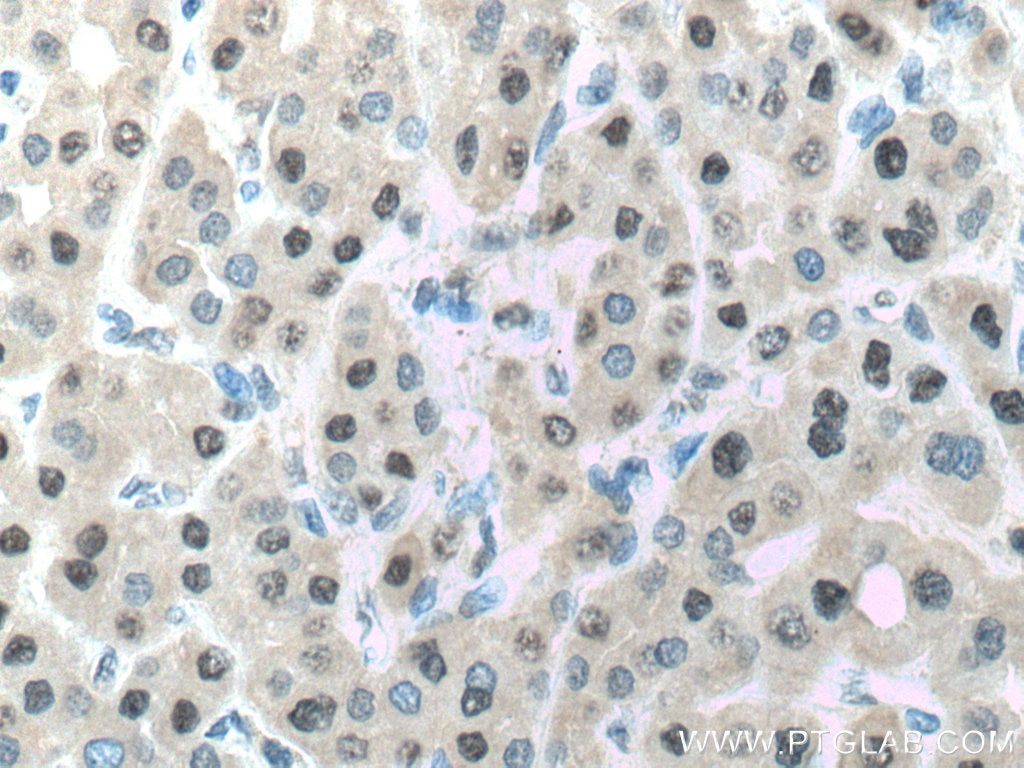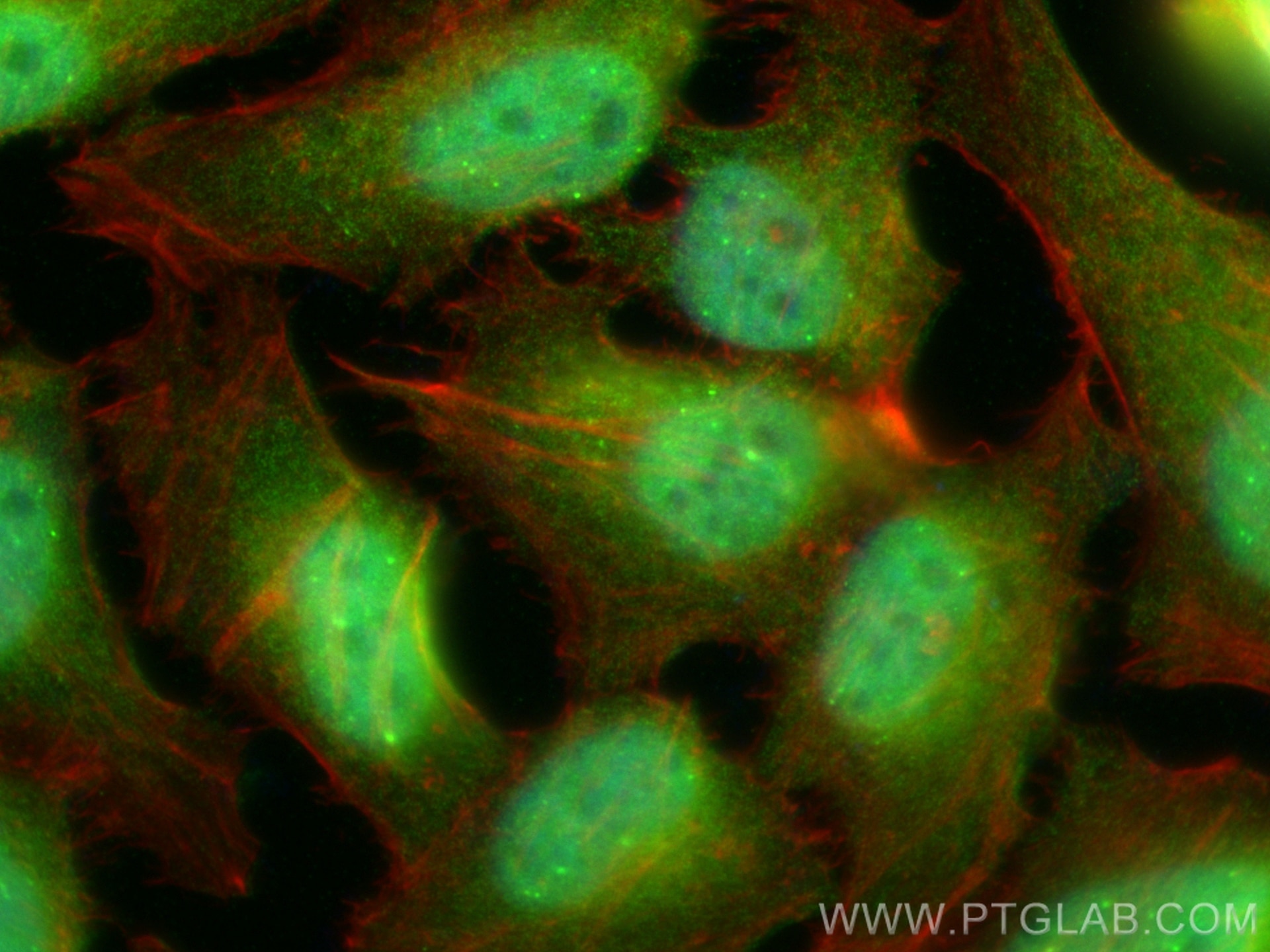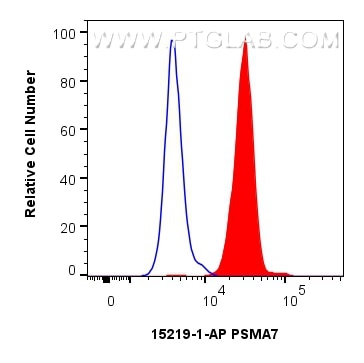Validation Data Gallery
Tested Applications
| Positive WB detected in | HepG2 cells, HeLa cells |
| Positive IP detected in | mouse brain tissue |
| Positive IHC detected in | human liver cancer tissue Note: suggested antigen retrieval with TE buffer pH 9.0; (*) Alternatively, antigen retrieval may be performed with citrate buffer pH 6.0 |
| Positive IF/ICC detected in | HeLa cells |
| Positive FC (Intra) detected in | HepG2 cells |
Recommended dilution
| Application | Dilution |
|---|---|
| Western Blot (WB) | WB : 1:3000-1:15000 |
| Immunoprecipitation (IP) | IP : 0.5-4.0 ug for 1.0-3.0 mg of total protein lysate |
| Immunohistochemistry (IHC) | IHC : 1:200-1:1000 |
| Immunofluorescence (IF)/ICC | IF/ICC : 1:200-1:800 |
| Flow Cytometry (FC) (INTRA) | FC (INTRA) : 0.25 ug per 10^6 cells in a 100 µl suspension |
| It is recommended that this reagent should be titrated in each testing system to obtain optimal results. | |
| Sample-dependent, Check data in validation data gallery. | |
Published Applications
| WB | See 11 publications below |
Product Information
15219-1-AP targets PSMA7 in WB, IHC, IF/ICC, IP, ELISA applications and shows reactivity with human, mouse, rat samples.
| Tested Reactivity | human, mouse, rat |
| Cited Reactivity | human, mouse, rat |
| Host / Isotype | Rabbit / IgG |
| Class | Polyclonal |
| Type | Antibody |
| Immunogen | PSMA7 fusion protein Ag7389 相同性解析による交差性が予測される生物種 |
| Full Name | proteasome (prosome, macropain) subunit, alpha type, 7 |
| Calculated molecular weight | 28 kDa |
| Observed molecular weight | 28-30 kDa |
| GenBank accession number | BC004427 |
| Gene Symbol | PSMA7 |
| Gene ID (NCBI) | 5688 |
| RRID | AB_2171751 |
| Conjugate | Unconjugated |
| Form | Liquid |
| Purification Method | Antigen affinity purification |
| UNIPROT ID | O14818 |
| Storage Buffer | PBS with 0.02% sodium azide and 50% glycerol , pH 7.3 |
| Storage Conditions | Store at -20°C. Stable for one year after shipment. Aliquoting is unnecessary for -20oC storage. |
Background Information
PSMA7(Proteasome subunit alpha type-7) is also named HSPC and belongs to the peptidase T1A family. It is an α-type subunit of the 20S proteasome core complex and participates in degrading proteins through the ubiquitin-proteasome pathway (UPP) which plays an important role in the regulation of cell proliferation or cell cycle control, transcriptional regulation, immune and stress response, cell differentiation, and apoptosis(PMID: 19442227).
Protocols
| Product Specific Protocols | |
|---|---|
| WB protocol for PSMA7 antibody 15219-1-AP | Download protocol |
| IHC protocol for PSMA7 antibody 15219-1-AP | Download protocol |
| IF protocol for PSMA7 antibody 15219-1-AP | Download protocol |
| IP protocol for PSMA7 antibody 15219-1-AP | Download protocol |
| Standard Protocols | |
|---|---|
| Click here to view our Standard Protocols |
Publications
| Species | Application | Title |
|---|---|---|
Brain Raising cGMP restores proteasome function and myelination in mice with a proteotoxic neuropathy. | ||
Glia Impairment of protein degradation and proteasome function in hereditary neuropathies. | ||
Mol Cell Proteomics Proteaphagy in Mammalian Cells Can Function Independent of ATG5/ATG7. | ||
Biochim Biophys Acta Mol Basis Dis Defective proteasome biogenesis into skin fibroblasts isolated from Rett syndrome subjects with MeCP2 non-sense mutations. | ||
